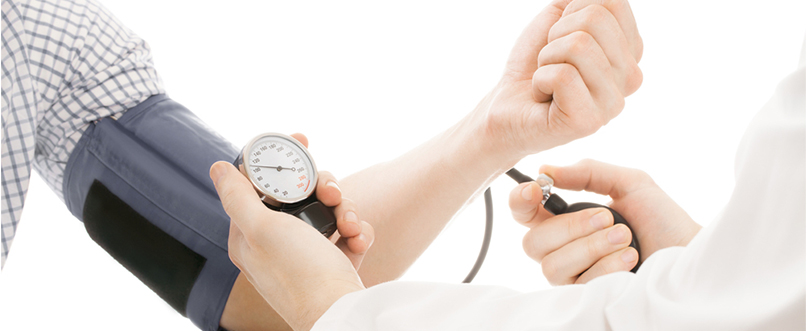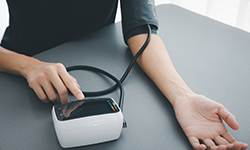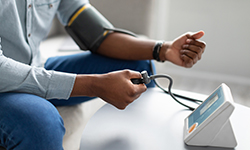Causes of an unexpected rise in blood pressure

Diet

A healthy diet can help lower blood pressure and minimize developing high blood pressure. Specific diets, on the other hand, might raise a person’s blood pressure by inducing water retention or weight gain.
Blood pressure can be raised by eating foods high in the following ingredients:
- sodium or salt
- saturated fats
- trans-fatty acids
- sugars
A heart-healthy diet contains a variety of heart-healthy foods, such as:
- fruits
- vegetables
- whole grains
- additional high-fiber foods
- polyunsaturated fats
Doctors often prescribe diet programs as part of the therapy for high blood pressure. The DASH diet plan, for example, integrates heart-healthy eating while simultaneously limiting items that raise blood pressure.
Changing your diet to a heart-healthy one is an intelligent approach to lowering your blood pressure. Anyone experiencing difficulty adjusting their diet should get advice from a dietician.
Missing a dose

Forgetting or skipping your medicines might have unanticipated consequences. This is especially true if you skip any doses. If you do not finish your treatments, your high blood pressure may remain for a longer period or even return unexpectedly. Then you may require a longer medicine course or more vital medicines. Incomplete treatments may also lead to you being resistant to medicines, so take all of your prescription medicines even if you feel better.
Intercurrent illness

High blood pressure occurs in approximately 1 in every 20 instances as a result of an underlying health issue or the use of a particular medication.
High blood pressure can be caused by several medical conditions, including:
- kidney disease
- diabetes
- chronic kidney illnesses
- hormone problems – such as an underactive thyroid, an overactive thyroid, acromegaly, increased levels of the hormone aldosterone (hyperaldosteronism), and phaeochromocytoma
- lupus – a disorder in which the immune system assaults bodily components such as the skin, joints, and organs
- scleroderma – a condition characterized by thicker skin and, in some cases, difficulties with organs and blood vessels
Drug interactions

If you have high blood pressure, you need to be more cautious with your prescriptions. Certain nonsteroidal anti-inflammatory medications, pharmaceutical combinations, and even over-the-counter cold treatments containing decongestants can induce a rise in blood pressure that can harm people who already have high blood pressure.
Mental stress

When you are in a stressful situation, your body creates a surge of hormones. These hormones raise your blood pressure briefly by causing your heart to beat quicker and your blood vessels to constrict.
There is no evidence that stress promotes long-term high blood pressure. However, inappropriate stress reactions might raise your risk of high blood pressure, heart attacks, and strokes. Certain habits such as smoking, excessive alcohol consumption, and eating unhealthy meals have been related to elevated blood pressure.
Development of secondary hypertension

Secondary hypertension typically develops fast and might be more severe than initial hypertension. Secondary hypertension can be caused by a number of disorders, including:
- Kidney disease
- Congenital heart abnormalities
- Thyroid issues
- Adverse effects of drugs
- Usage of illicit substances
- Persistent alcohol intake
- Problems with the adrenal glands
- Some endocrine tumors
White-coat syndrome

When anxiety or tension from a doctor’s appointment induces a temporary rise in blood pressure, this is a white-coat syndrome. You may discover that your reading is normal at home. A high blood pressure level does not indicate hypertension (high blood pressure). People with white-coat hypertension, on the other hand, are more prone to acquire high blood pressure.
Conclusion
High blood pressure raises the chance of more major cardiac problems, such as atherosclerosis and heart attack.
Direct dietary and lifestyle adjustments may result in relatively rapid blood pressure decreases. In certain circumstances, physicians may offer medicines to maintain blood pressure in check while a person adjusts their diet and lifestyle.
While certain modifications might generate immediate advantages, it is critical to maintain these trends. Returning to previous behaviors may merely reverse these adjustments, causing the person’s blood pressure to rise again.
Consistent adjustments, rather than a fast remedy, is the ideal approach to lower blood pressure in the long run. Dive into the official webpage of BPinControl to learn more about blood pressure and its causes.

Comments (0)
No comments found.Add your comment